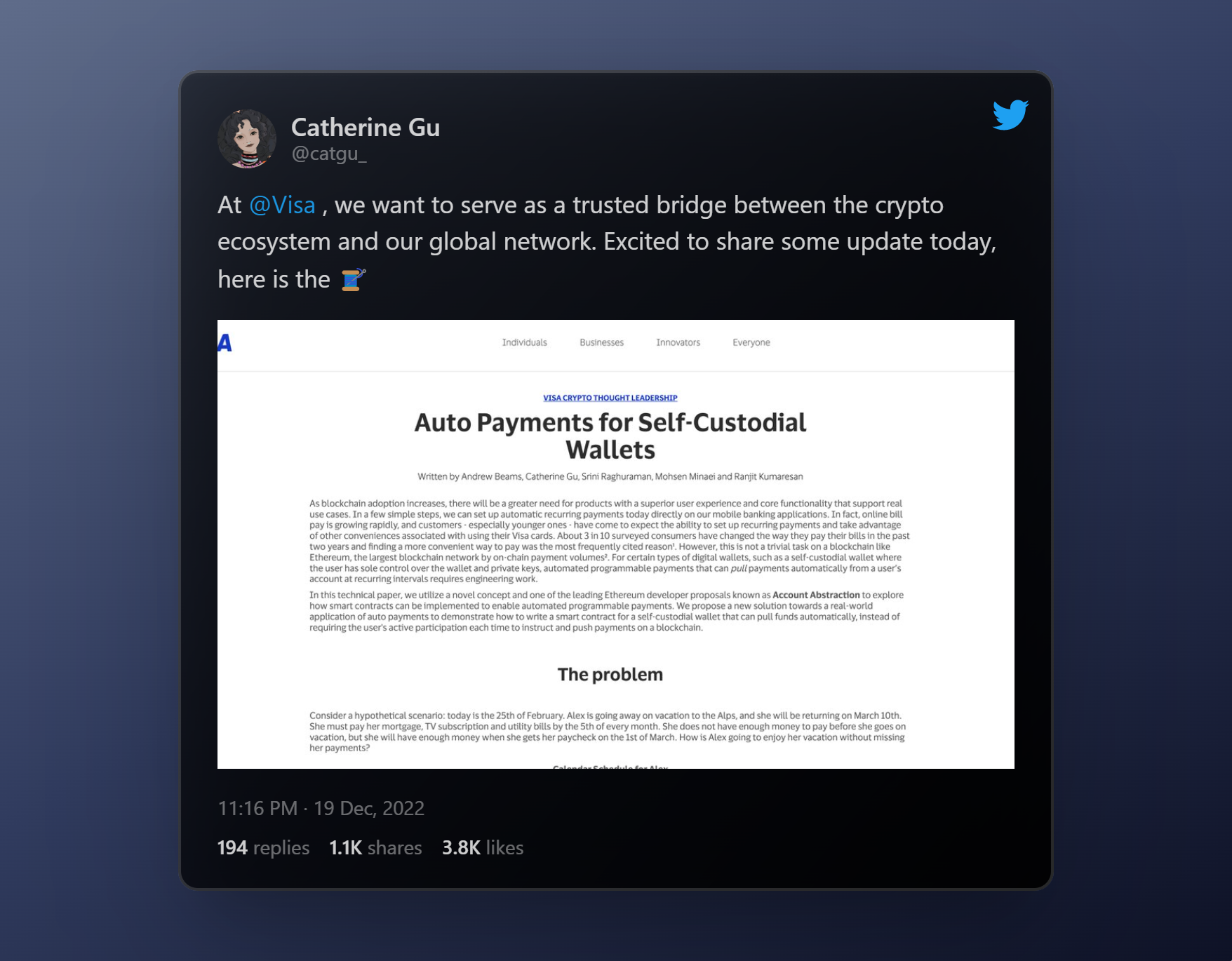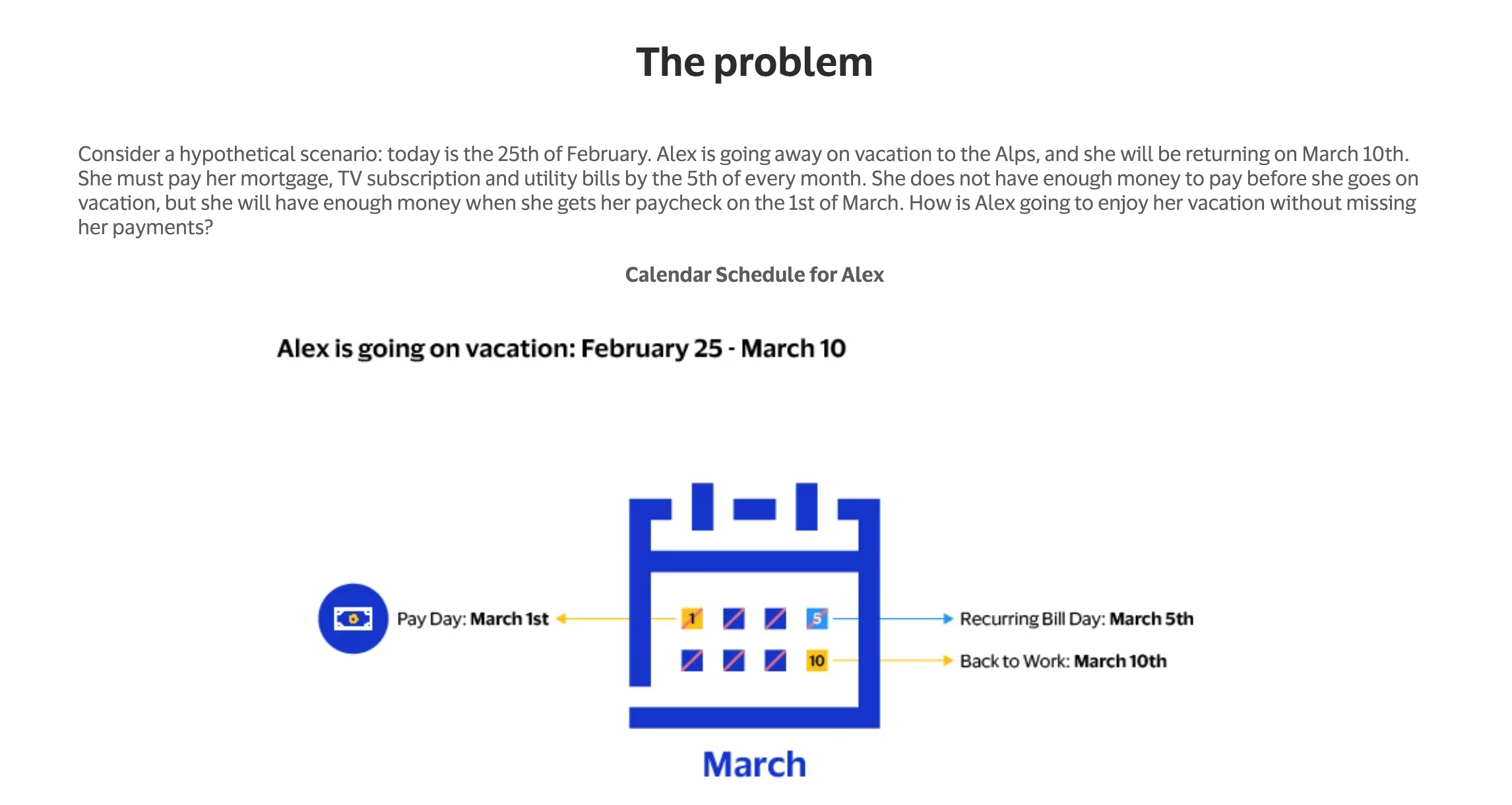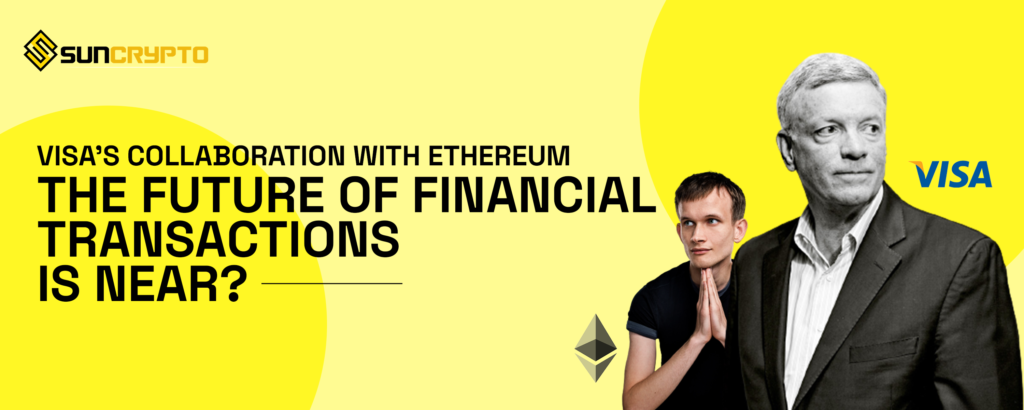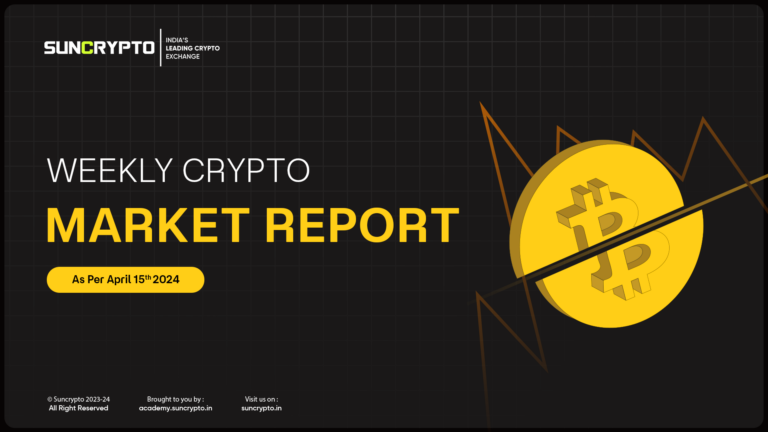VISA on Monday shared a paper about the possibility of Visa’s collaboration with the Ethereum Network for automatic payments.
The proposal is the most recent of several promising attempts to align digital assets with early proponents’ vision of a banking system free of layers of fee-grabbing intermediaries, coming at a time when more than $2 trillion has been wiped off the market value of cryptocurrencies and following numerous high-profile bankruptcies of centralized exchanges and lenders.
Catherine Gu, Head of CBDC and Protocols at Visa said, “We want to have the ability to contribute to technical improvements happening in the crypto ecosystem actively.” “The best way to achieve that is to learn by doing, namely by knowing more about Web3 infrastructures and blockchain protocols, which I believe will be crucial for payments.

Gu’s group is constantly researching what other blockchain technologies are poised to revolutionize the world of payments—and how soon their adoption could be implemented. The group was originally established to look into the possibility of digital currencies supported by global governments.
Although this technique is still in its infancy, Gu speculated that it might one-day yield fruit. “There is a need for further research on fundamental payment-related issues including security and scalability.
What’s The Reason Behind Visa’s Collaboration With Ethereum?
This paper happened after the VISA hosted an internal hackathon where it became a topic of discussion on how Ethereum users can get scheduled auto-payments sent from self-custodial crypto wallets with the help of VISA. At the moment Ethereum doesn’t support this functionality but can happen with the concept called “Account Abstraction.” This will allow user accounts to behave as smart contracts and pre-schedule the execution functions.
Where Ethereum is Lacking?
Ethereum blockchain offers two types of accounts i.e Externally Owned Accounts (EOA) and Contract Accounts (CA). EOA is known as the user accounts whereas the CA is referred to as Smart Contracts. Although a smart contract includes linked code that can be run, it cannot start transactions on its own. All transactions must come from a user account and bear the user’s signature. In short CA accounts cannot initiate transactions and that’s where Account
The reason that this scheduling on the blockchain is that to make the transaction, the token needs to be transferred from the person’s EOA account to the recipient’s account. The user’s EOA creates a private key that will be known only to the user and this private key is generated by Elliptic Curve Digital Signature Algorithm (ECDSA) signature, and only then the transaction will happen. So if a person is not around or busy or on holiday this signature won’t be generated to complete the transaction.

This information is taken from the VISA’s published paper. You can check it out in detail here.
What To Know About Account Abstraction?
Ethereum developer Vitalik Buterin first suggested the idea of converting a smart contract into a wallet in 2015. Later on, it was formally adopted as EIP 86 in 2017. The Visa idea is now classified as “stagnant” because of the lack of movement for more than six months. It might spark attention if Buterin designates it as a draft or if one of the recent proposals gains support.
On the Ethereum blockchain, the Account Abstraction proposal will try to merge user accounts and smart contracts into a single type of account. This is possible by enabling the development of validity guidelines for specific transactions.
Abstraction can help by creating a Smart Contract to initiate transactions on behalf of the EOA. This will make it possible to create a self-custodial wallet that can make regular payments on autopilot mode. According to the Visa’s shared paper, AA can make the process of validating transactions on the blockchain more flexible by
- By using several signatures, it supports multi-owner accounts.
- It will make it possible to verify transactions using post-quantum signatures.
- By eliminating any signature verification, it permits the creation of a public account. From these public accounts, anyone can execute a transaction.
Final Thought
Visa has shown its interest in cryptocurrency from the start and has also made attempts to upgrade with it. This time Visa has presented its thoughts and possible planning for collaborating with Ethereum to work on common problems on the Ethereum blockchain.
For more content updates similar to this”Visa’s Collaboration With Ethereum”, check-out Suncrypto Academy.
Disclaimer: Crypto products and NFTs are unregulated and can be highly risky. There may be no regulatory recourse for any loss from such transactions. All content provided is for informational purposes only, and shall not be relied upon as financial/investment advice. Opinions shared, if any, are only shared for information and education purposes. Although the best efforts have been made to ensure all information is accurate and up to date. Occasionally unintended errors or misprints may occur. We recommend you to please do your own research or consult an expert before making any investment decision. You may write to us at [email protected].






Der suncrypto please give advice in advance support and rejections
For all taligram members thank you